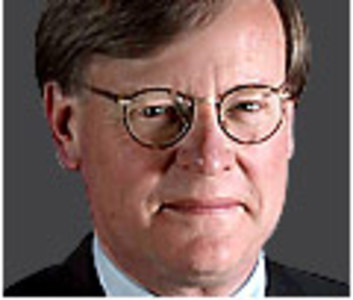The Quebec election results - a feeble Liberal minority - illustrate the continuing disengagement of the province's francophones from Canada. Where this will lead is unknown, but this disengagement will intensify demands for more power and money for Quebec.
The results also show, quite predictably, how little federalists were helped by Prime Minister Stephen Harper's "solution" to the so-called fiscal imbalance and other measures designed to curry favour for federalism in Quebec.
The Prime Minister's overt strategy of catering to Quebec will help his own party in the next federal election. Last night, at best, it might have slowed slightly the marked decline in the provincial Liberal vote. Chances are, the Harper strategy did not even accomplish that modest objective.
Jean Charest's Liberals, the so-called strong federalists, got fewer francophone votes yesterday than the Parti Québécois, the party backing secession, and the Action Démocratique, the party proposing the oxymoronic policy of Quebec "autonomy" within Canada.
Even the francophones who voted Liberal were supporting a party whose leader spent the campaign promising to "defend Quebec's interests." Mr. Charest defined this need as further expanding Quebec jurisdiction within Canada and abroad, and curbing the federal spending power. Without a majority, he argued, Quebec would be "weakened before Ottawa and the rest of Canada," as if people elsewhere were planning an assault on the province.
The Liberals attracted less than a third of the francophone vote, while capturing the lion's share of the non-francophones. Most francophones, then, voted for parties with no interest in Canada (the PQ) or almost no interest (the ADQ), except as a matter of convenience.
The ADQ opposes another referendum, as do the Liberals. Thanks be for that, although two separate countries would be better than the constitutional monstrosity of the ADQ's "autonomous Quebec" within Canada. Federal politics has witnessed something of the same pattern since the creation of the Bloc Québécois after the collapse of the Meech Lake accord. In every subsequent federal election, the Bloc has won the largest number of francophone votes.
By definition, the Bloc cannot be part of the governance of Canada; indeed, the party is not interested in that governance, except for what it does for or to Quebec. A Bloc vote can mean many things - but it cannot mean participating in the governance of Canada.
Such is the state of federalism in Quebec that the Liberals can only command the support of about a quarter of francophones. Mr. Harper might have thought that delivering on his election promise to resolve the mythical "fiscal imbalance" would help Mr. Charest. So would the other manifestations of "open" federalism. The results demonstrated that these efforts flopped.
Quebeckers had already psychologically pocketed the "fiscal imbalance" cash, as could have been predicted. Bloc Leader Gilles Duceppe brilliantly captured that attitude in saying: "It's our money."
Of course, the money was not, but no matter. Quebeckers pay about 20 per cent of total federal revenues. Thus, about 20 per cent of the equalization money pot comes from Quebec. The province will be getting more than $7-billion in additional payments in coming years, meaning that, by definition, about $5.5-billion will be transferred from elsewhere, mostly from Ontario. Quebeckers had been conditioned to believe, including by the Prime Minister, that the federal system "owed" them money. Solving the "fiscal imbalance" was thus viewed as debt repayment, not something to inspire gratitude.
Mr. Harper will now deal with a Quebec government even more nationalist and determined to extract additional power and money from Ottawa.
For Mr. Charest, Mr. Harper's "open" federalism meant open chequebooks, because the Prime Minister had a Mulroneyesque grand strategy to build the Conservative Party in Quebec and sway nationalist Quebeckers toward federalism. Presumably, the grand strategy remains in place, despite its setback last night.
Quebeckers are brilliant. They have a more nationalist government in Quebec City to press their interests against Ottawa. They have their own official opposition, the Bloc, to press their interests in Ottawa.
And they have a PM whose "open" federalism has been like pushing against an open door.
jsimpson@globeandmail.com





















Laissez un commentaire Votre adresse courriel ne sera pas publiée.
Veuillez vous connecter afin de laisser un commentaire.
Aucun commentaire trouvé